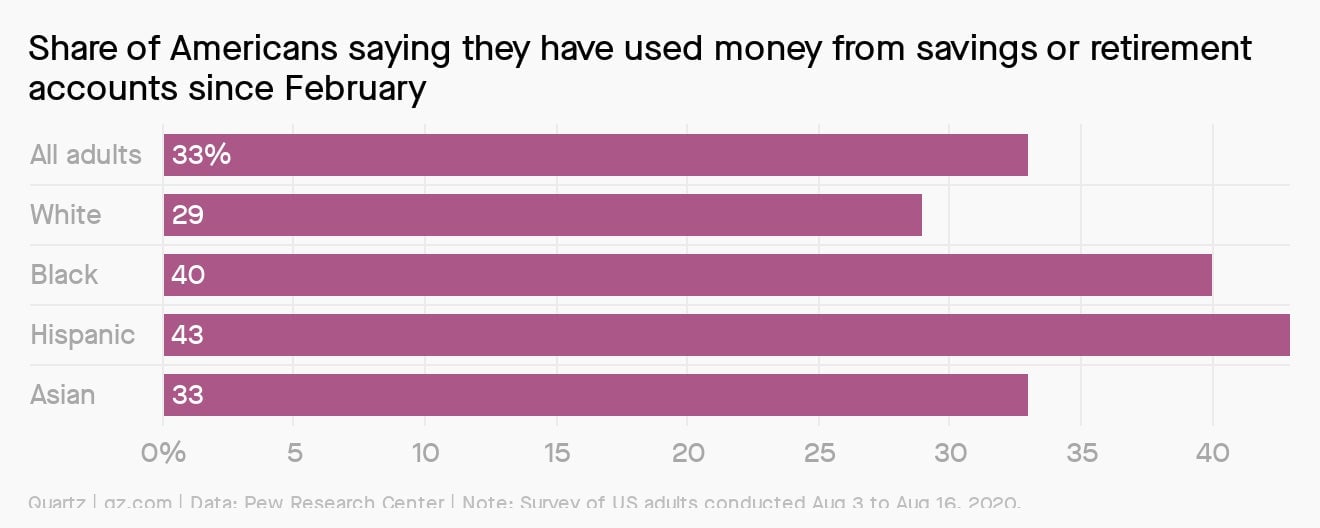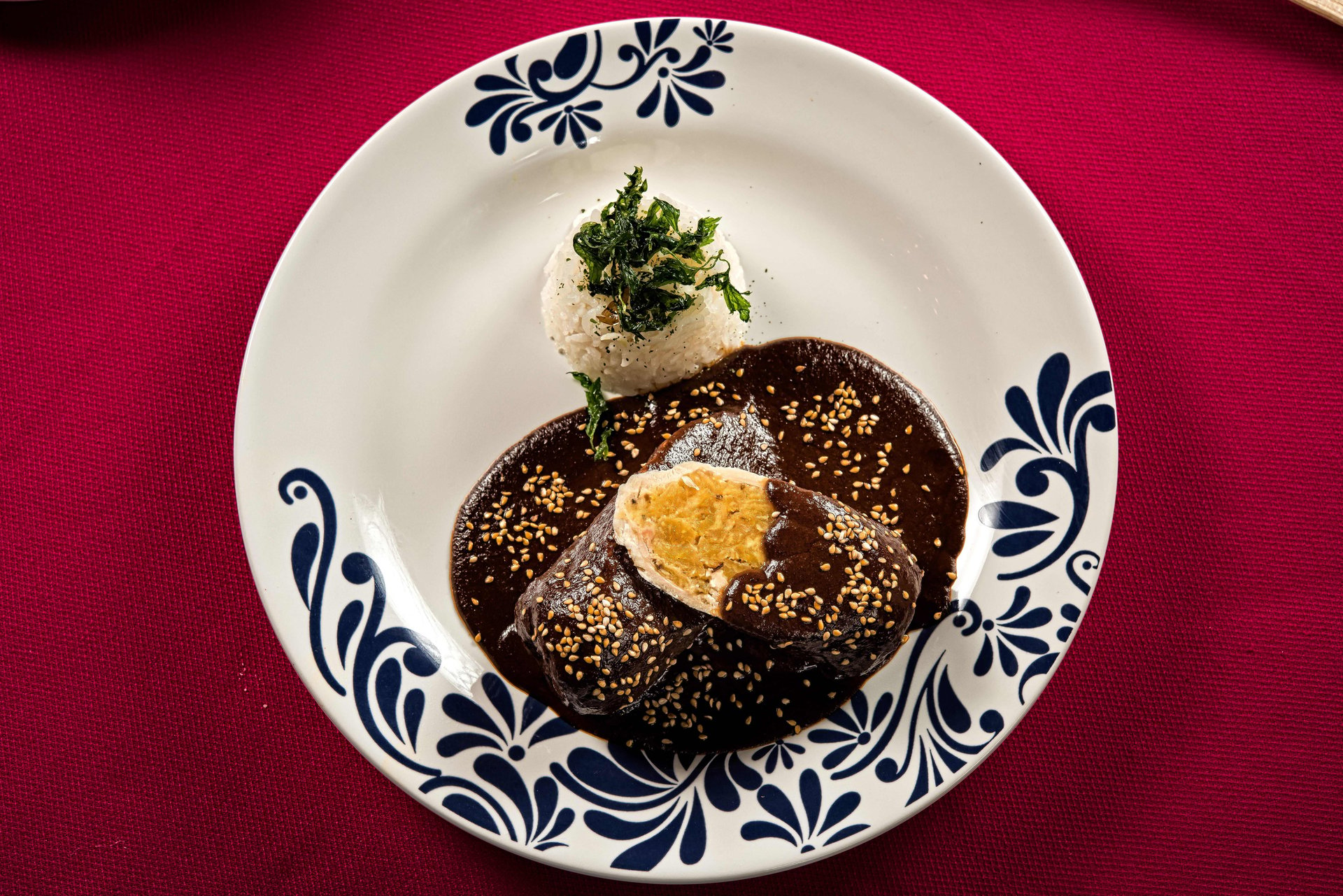Rival app stores, relentless Reliance, sauce sleuths
Good morning, Quartz readers!

Good morning, Quartz readers!
Here’s what you need to know
Dozens of protesters were arrested in Hong Kong… Demonstrations on China’s National Day were much smaller this year due to the city’s new security law and pandemic restrictions—not to mention thousands of police officers on the streets—but at least 60 pro-democracy activists were arrested for participating in an unauthorized assembly.
… and opposition leaders were arrested in India. Rahul Gandhi and Priyanka Gandhi Vadra were stopped and detained by police on their way to visit the family of a Dalit woman who died after an alleged gang rape. Restrictions have been placed on the woman’s village as police seek to tamp down protests over their handling of the case.
India might launch its own app store. Following complaints from local startups over high fees, Indian officials are reportedly open to competing with Google and Apple’s increasingly scrutinized software deployment practices.
A UK report found Huawei is slacking on security. A government oversight board said the Chinese telecom failed to adequately address previous complaints, and cast doubt on its ability to mitigate risks to national security.
Abu Dhabi is the latest investor in Reliance Industries. Backed by the UAE government, Mubadala Investment snapped up a 1.4% equity stake in the Indian conglomerate’s retail division for $853 million, adding to Reliance Retail’s recent $1.8 billion fundraising haul.
Hackers targeted the UN’s global shipping agency. A cyberattack against the International Maritime Organization is the second to hit the industry this week, following a suspected data breach of the France-based container liner CMA CGM.
The new geography of summer vacations
It was an unusual summer for travel in the US. From the Florida Keys to Northern Michigan, Covid-19 disrupted the summer vacation scene. To better understand how Americans spent their summer, we looked at smartphone data that measures the number of visits to stores, restaurants, and other notable landmarks at some of the country’s most popular destinations:
- 🍊 The Florida Keys: Monroe County saw visits increase about 35% over 2019 levels.
- 🎰 Las Vegas: Visitors were down almost 50% year-over-year.
- 🏕 Northern Michigan: Rural counties saw more tourists this Labor Day than last year.
- 🏜 Utah: Washington County, home of Zion National Park, saw a 20% jump in tourists.
- 🦞 Maine: Trips to popular “Vacationland” destinations dipped by almost 30%.
Charting Americans’ dwindling savings
America’s poor are reaching deep to make ends meet. A new survey finds that 44% of lower-income Americans say they have dipped into their retirement or other savings since the start of the coronavirus crisis, while only 16% of upper-income people say they have done so.

This is not a drill
When the pandemic caused Nasdaq to shutter its offices earlier this year, its staff was ready. That’s because they had practiced how to deal with a crisis—in their case the scenario was an undetonated bomb discovered in the center of Vilnius, where the group’s European operations has one of its biggest offices.
The Lithuanian capital, like many European cities, has occasionally had to contend with construction work surfacing undetonated bombs left over from World War II. Running a simulation like this is part of the exchange’s “business continuity planning.” Getting used to these kinds of situations helped prepare the company for the pandemic, says Gunilla Hellqvist, head of Nasdaq’s European market operations.
Our latest field guide provides lessons from virtual, borderless teams like Nasdaq on how to navigate the cultural and structural challenges that are part and parcel of remote work. Read more here.
✦ Our number one crisis preparedness tip is to become a Quartz member today. You’ll get a paywall-free experience, plus member exclusives like our field guides, presentations, events, and more.
Obsession interlude: Borders

Globalization is built on crossing borders, but its cultural aftershocks aren’t anything new. Consider mole poblano—a gorgeous sauce of ground and stewed chilis, tomatoes, nuts, fruit, and, iconically, chocolate.
Today, it’s arguably Mexico’s national dish, but mole emerged from a remezcla—remix—of indigenous heritage, colonial influence, and Muslim history. The likely apocryphal tale of the sauce’s origin involves a 17th-century bishop’s visit to a convent outside Mexico City, often with a cameo from an indigenous cook. The name mole is traced to a native Mexican word for sauce, mulli.
But the origins go even deeper. Food historian Rachel Laudan makes the case that mole begins with Islamic cuisine in the Persian empire, which popularized stews thickened with nuts, fruits, and bread. When Islamic empires conquered modern Spain, they brought their food, too. And when Spanish conquistadors arrived in Mexico, those culinary traditions melded with indigenous techniques and local ingredients.
If you want to try to make it yourself over the weekend—it’s a big lift but well worth it—check out this recipe.
Learn more about how trade carves new routes by checking out our Borders obsession.
You asked about ventilation
How do I know if my indoor spaces are well enough ventilated to thwart the spread of Covid-19?
There is a growing consensus that one of the primary ways the novel coronavirus spreads is through the air. That makes it risky to put a lot of people in a poorly ventilated space. As schools, offices, and businesses reopen, facilities managers are looking at one particular metric to gauge whether there’s an elevated risk of coronavirus transmission: air changes per hour (ACH).
For a breakdown of how an ACH works and benchmarks to be aware of when optimizing for ventilation, breeze on over to the website.
We’re… still obsessed with Indian weddings

Oops! Due to a technical glitch in yesterday’s Daily Brief, we left out the invitation to our Indian weddings email. So don your glitziest sari, load up Instagram, and RSVP to the Quartz Weekly Obsession.
And don’t miss out again on our account—subscribe to the free newsletter below.
Surprising discoveries
Ireland said Subway’s bread isn’t really bread. It’s got too much sugar in it.
Even coal companies are divesting from coal. And at least one is using the cash to invest in electric vehicles.
So many places in the US are testing poop for Covid-19, equipment is running out. Scanning sewage is one way to prevent the spread of the virus.
Maybe there is such a thing as being too rich. The new CEO of Norway’s wealth fund is finding it hard to store the cash from selling off his personal investments.
A long-lost live Ella Fitzgerald album is released today. Ella: The Lost Berlin Tapes documents a performance from the singer’s third visit to the city.
Our best wishes for a productive day. Please send any news, comments, good bread, and good mole sauce to [email protected]. Get the most out of Quartz by downloading our iOS app and becoming a member. Today’s Daily Brief was brought to you by Liz Webber, Jackie Bischof, Tim Fernholz, Dan Kopf, and Max Lockie.